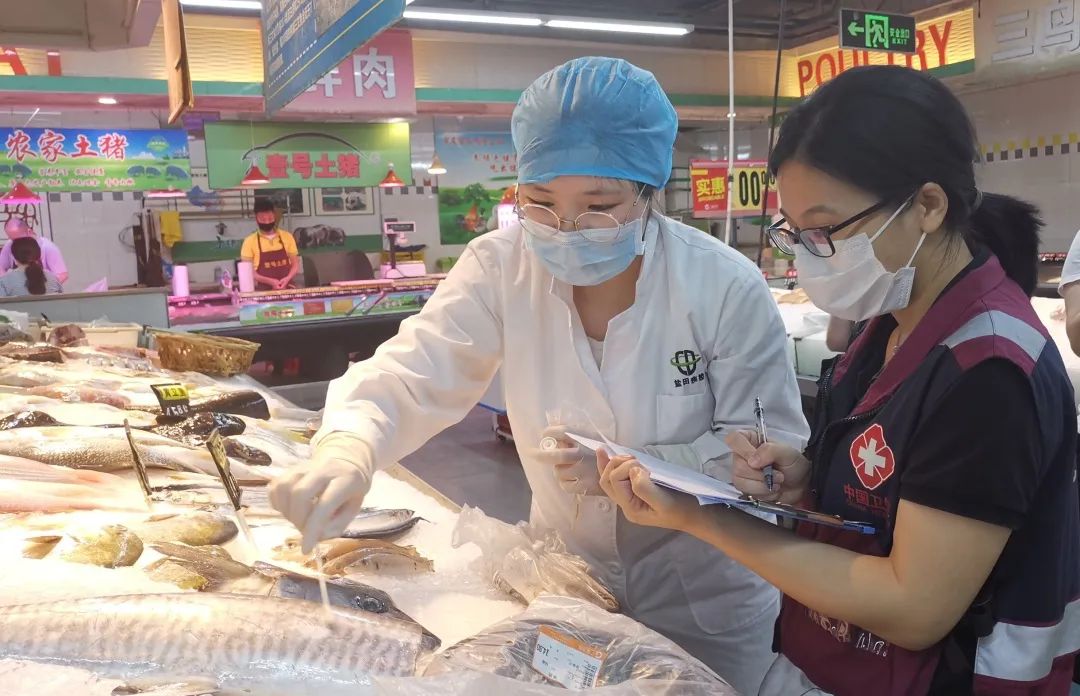More than 1,200 samples from local markets test negative for virus
Writer: Han Ximin | Editor: Holly Wang | From: Shenzhen Daily | Updated: 2020-06-18

Staffers from Shenzhen's health authority collect samples at a wholesale market.
All the 1,213 samples collected from supermarkets and wet markets across Shenzhen tested negative for COVID-19, the city’s health commission said yesterday.
The city is stepping up inspections of fresh and frozen meat and seafood at supermarkets and wet markets after a new outbreak of the novel coronavirus infection in Beijing has been linked to a food market.
Shenzhen’s health authority launched Saturday an emergency test on six wholesale markets, 17 wet markets and 23 supermarkets across the city, and conducted nucleic acid tests on 343 vendors in the markets.
The samples, including 373 environment samples and 418 food samples, were mainly taken from seafood and poultry stalls, especially the counters and stalls for imported food, the authority said.
The test was made to evaluate COVID-19 risks at markets following the requirements of Guangdong to tighten COVID-19 prevention at markets and within the seafood industry.
Shenzhen has scaled up COVID-19 prevention and control measures, and raised the alert level at the airport and ports following a spike of COVID-19 cases in Beijing, which has reported 137 newly confirmed cases in six days as of Tuesday.
In its latest effort, Guangdong is requiring people who have traveled to COVID-19 high-risk areas in the country in the past 14 days to undergo a 14-day centralized quarantine upon arrival in the province.
At a news conference of the Guangdong Information Office yesterday, Duan Yufei, director with the provincial health commission, said Guangdong will step up joint inspections at airports, ports, railway stations and bus terminals, and tighten temperature and health checks of people returning from medium- and high-risk regions.
Duan said the province is tracking people who had been to the Xinfadi market in Beijing or had contact with people working there since May 30 and will conduct two-time acid tests on them during their 14-day quarantine. He also urged people with travel history to Xinfadi in recent weeks to report to local centers for disease control and prevention or communities.
Residents are also reminded to take precautions, like washing hands frequently and wearing masks in crowded public places like Metro stations.
Guangdong has had no locally transmitted COVID-19 cases for 50 days by Tuesday.
Since the outbreak of the COVID-19 pandemic, Guangdong has accumulatedly reported 1,628 cases, including 233 imported cases. At present, 27 are receiving treatment at hospital.